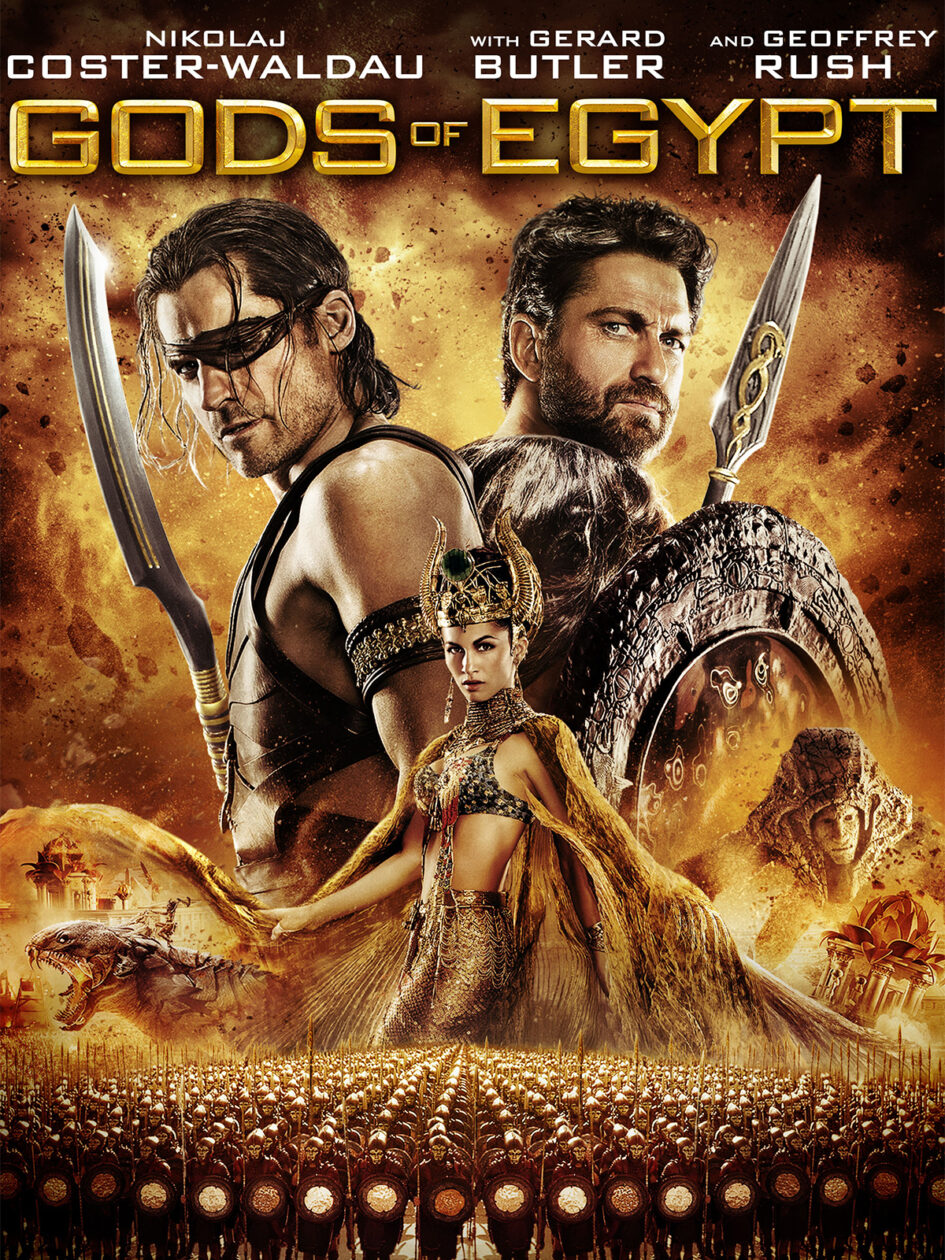If you’re in the mood for a visually spectacular, action-packed fantasy that dives into the clash of gods and mortals, Gods of Egypt (2016) is a wild ride worth taking. As someone who thoroughly enjoyed this film, I found myself swept away by its larger-than-life depiction of ancient Egyptian mythology, its vibrant visuals, and the surprising depth it brings to the interplay between divine power and human vulnerability. Below, I’ll share why this movie captivated me, weaving in some context and quotes to bring the magic to life.
A World Where Gods and Mortals Collide
Gods of Egypt, directed by Alex Proyas, transports you to a mythical version of ancient Egypt where gods walk among mortals. These deities are towering, golden-blooded beings with immense power, yet they’re just as flawed as humans—prone to jealousy, betrayal, and even love. The story follows Horus (Nikolaj Coster-Waldau), the god of the sky, who loses his eyes (and his claim to the throne) to his scheming uncle, Set (Gerard Butler), the god of chaos. Enter Bek (Brenton Thwaites), a clever mortal thief, who teams up with Horus to reclaim what was stolen and restore balance to Egypt.
What hooked me was how the film portrays the stark differences between gods and mortals while showing how their fates are intertwined. The gods are larger-than-life—literally taller, stronger, and capable of transforming into majestic, animal-like forms (Horus’s falcon form is epic). Yet, they’re not untouchable. As Set declares, “I am a god! I cannot die!”—only to be proven wrong in spectacular fashion. This contrast kept me on edge, wondering how a mere mortal like Bek could influence such a divine conflict.
Visual Splendor and Mythical Realms
The film’s visuals are a feast for the eyes. From the sprawling, golden city of ancient Egypt to the surreal afterlife ruled by Ra (Geoffrey Rush), every frame bursts with color and imagination. The depiction of the gods’ realm versus the mortal world is striking—gods live in opulent palaces floating in the sky, while mortals toil below. Yet, the movie cleverly shows how these realms aren’t as separate as they seem. One of my favorite moments is when Ra, aboard his solar barge, battles the chaos demon Apophis in the cosmic void. Ra’s line, “Every night, I fight to keep the world from ending,” underscores the gods’ immense responsibility, but also their fragility—because even gods can be caught off guard.
This theme of being caught off guard resonated with me. The film shows that no matter how powerful you are, life (or the afterlife) can throw curveballs. Horus, stripped of his eyes and godhood, is humbled and forced to rely on Bek’s cunning. It’s a reminder that even in a world of divine beings, wit and heart can tip the scales.
Why I Loved It: Heart, Humor, and Humanity
What made Gods of Egypt so enjoyable for me was its blend of heart, humor, and humanity. Bek’s journey from a skeptical thief to a hero who risks everything for love (for his mortal girlfriend, Zaya) grounds the film’s fantastical elements. His banter with Horus, like when he quips, “You’re not exactly inspiring confidence, you know,” had me chuckling and rooting for their unlikely partnership. The gods, despite their powers, grapple with very human emotions—Horus’s guilt, Set’s ambition, and even Hathor’s (Elodie Yung) struggle between loyalty and love. These flaws make the divine feel relatable, which is no small feat in a film this grandiose.
The action sequences are another highlight. Whether it’s Horus battling Set’s minions in his falcon form or Bek dodging traps in a booby-trapped labyrinth, the pacing keeps you glued to the screen. Sure, the film takes liberties with Egyptian mythology (purists might cringe), but it’s less about historical accuracy and more about crafting a thrilling fantasy epic. As someone who loves a good underdog story, watching Bek—a mortal with no powers—outsmart gods was incredibly satisfying.
A Lesson in Vulnerability and Resilience
One of the film’s subtler messages is how even the mightiest can be caught off guard. Horus starts as an arrogant god, but his journey teaches him humility and the value of mortal courage. Set’s overconfidence blinds him to his own downfall. For me, this mirrors real life—whether you’re a “god” in your field or just a regular person, unexpected challenges can shake you. The film’s charm lies in showing how resilience and unlikely alliances can overcome even divine odds.
Final Thoughts: A Guilty Pleasure Worth Watching
Gods of Egypt isn’t a perfect film—it’s been criticized for its loose take on mythology and some clunky dialogue—but I loved it for its unapologetic ambition and heart. It’s a reminder that even in a world of gods, mortals can shine, and even the divine can stumble. If you’re looking for a fun, visually stunning escape with a mix of humor, action, and heart, give it a watch. As Ra says, “The fate of the world is in your hands.” For a couple of hours, let Gods of Egypt sweep you into its chaotic, mythical world—you might just be surprised by how much you enjoy it.
Have you seen Gods of Egypt? What did you think of its take on gods and mortals? Drop a comment below!

Leave a Reply